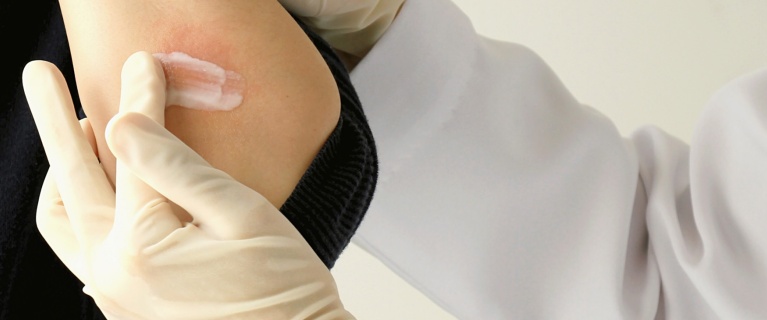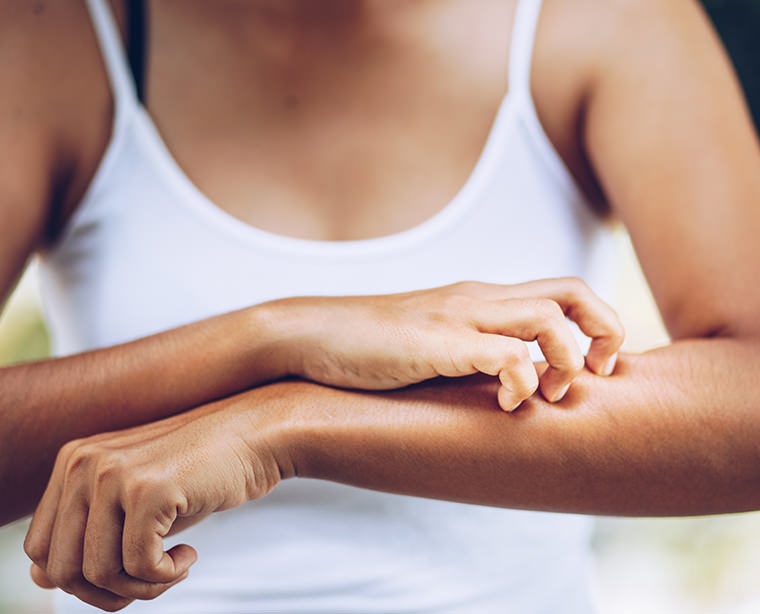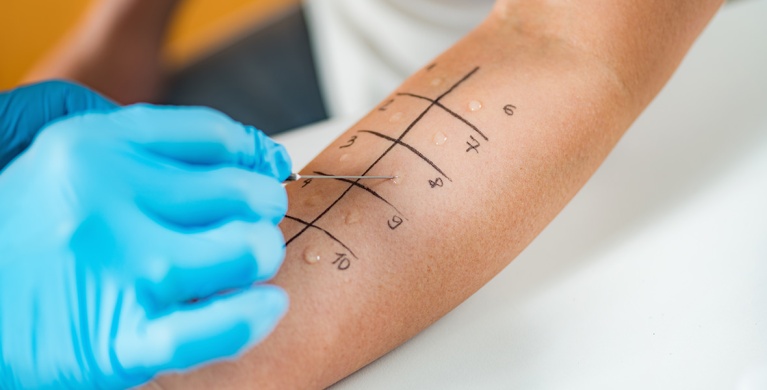

Treatments for eczema

Eczema is itchy, so how can it be relieved quickly? The good news is that anti-inflammatories can greatly reduce discomfort and redness.
However, treatment and the right habits to adopt vary depending on whether your eczema is atopic in origin or due to an allergic contact reaction.
Reduce redness and itching
The most common medication used to relieve eczema is cortisone cream. It reduces inflammation (redness), both for atopic and allergic eczema. There are other treatments for more severe cases of atopic eczema.
Long-term treatments for atopic eczema
Hygiene and care
Adopting the right habits when taking your bath or shower and managing to hydrate your skin regularly and properly are crucial factors in treating eczema. Good skin care is just as important as cortisone cream, as it helps to repair the skin and push back the next outbreak. Atopic dermatitis cannot be cured in the same way as toothache, because it returns in cycles, usually disappearing of its own accord before adolescence however.
Therapeutic education
There are many misconceptions about eczema, and learning how to comply with treatment makes a real difference. These workshops are therefore a genuine boost to your well-being and help reduce treatment failures.
Therapeutic education is so beneficial for cases of severe eczema that half of the time it prevents the need for treatments stronger than topical corticosteroids.
Hydrotherapy
Hydrotherapy is very popular and takes place, as the name suggests, at a hydrotherapy center. The program includes baths or showers, hydrating care and workshops to look after your skin and learn to live a little better with the condition.
Allergy tests to find the cause of contact eczema
This is a key step in getting rid of allergic contact eczema. Your doctor will test different allergens on your skin using skin tests to find out which ones are causing the problem. They should then be avoided on a daily basis to prevent your eczema from returning.

